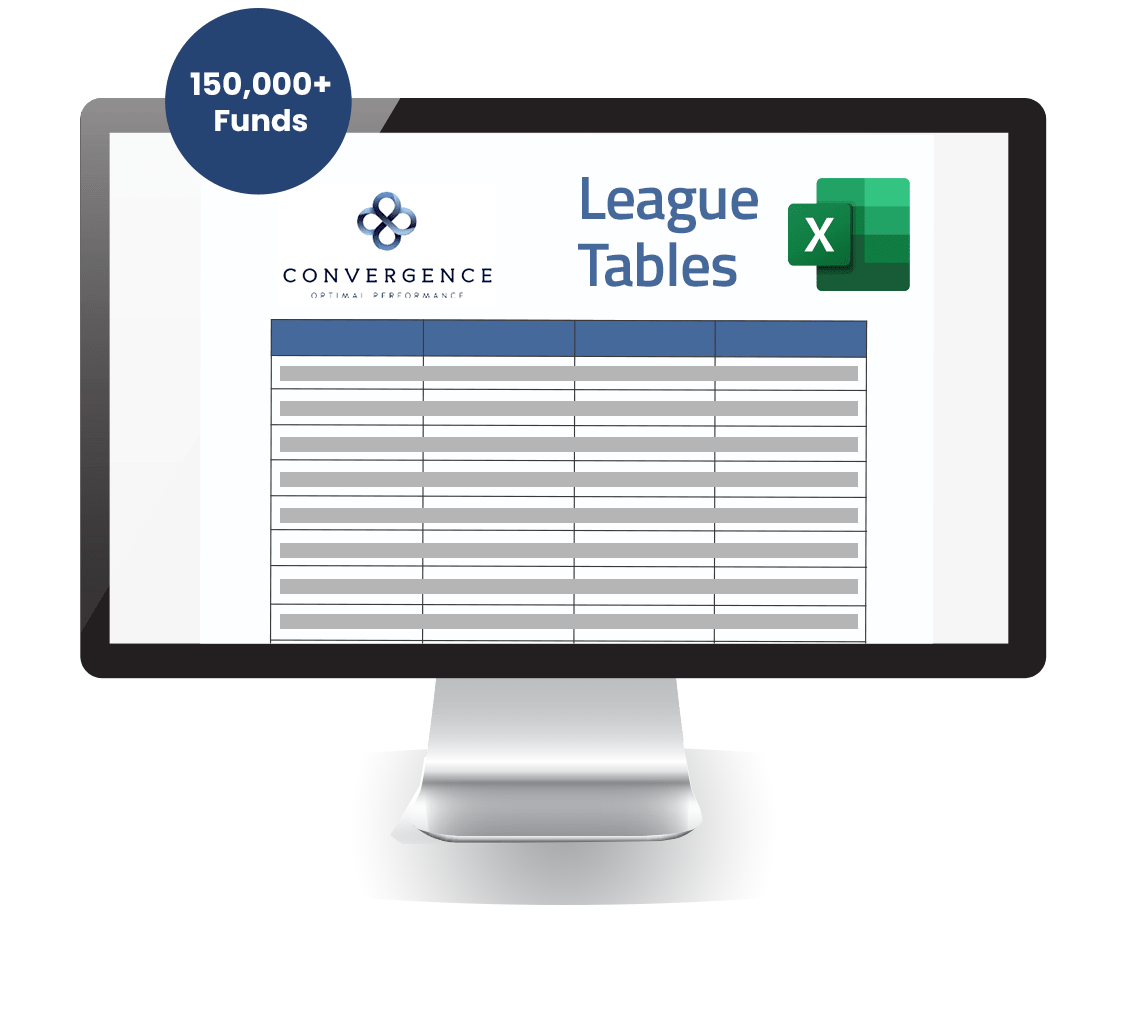Top 25 Fund Auditor League Tables
Private and Public Fund Auditors
Stay on top of the fund auditors who are winning and losing market share in this highly competitive and rapidly changing industry. Our League Tables are drawn from our industry leading database that includes 287,000+ active public and private funds, 46,000+ registered and un-registered US and non-US investment advisers and 5,000+ service providers. Do not be fooled by competitors who include inactive funds in their numbers.
Ideal for investment advisers looking for independent decision support when looking to hire new or change existing auditors, fund administrators who want to track the performance of auditors to the funds that they are targeting or currently service, investment bankers looking to identify candidates in this highly competitive market, asset owners who want to improve their understanding of the auditors auditing their funds or their advisers (surprise examinations) and regulators who want to study growth and risk trends in the industry..
All reports include a year-over-year view of the Top 25 Auditors with detailed market share segmented by Hedge, Private Equity, Private Credit, Infrastructure, Venture Capital, Real Estate, Securitized Assets, Liquidity and Other fund type.

Features
- Listing of Top 25 Auditors by Funds and Assets
- Number of Funds Serviced
- Amount of Assets Serviced
- Year-over-Year Change in Funds and Assets
- Market Share of Top 25
- Current Period Rankings and Year-over-Year ranking changes
- Segmented by Fund Type
Choose Your League Table Subscription (Annual)
Global (Public and Private) League Tables
Public Fund League Tables
Private Fund League Tables
MOST POPULAR!
Get an Annual Subscription to Our Total Market League Table
Detailed and segmented auditor insights into 247k+ funds accounting for $86 TN in assets
$20,000
Use Cases
- Audit Firms:Audit Partners and senior management use League Tables to monitor, measure and benchmark their growth versus the market, market segment and peer group and their progress against strategic growth plans
- Fund Administrators, Custodians, Prime Brokers, Marketers and Compliance Firms:Use our League Tables to follow Auditors doing business with the funds they support.
- Investment Banks & PE Firms:Our League Tables are used to measure the size and growth of funds and assets in the market and sub-markets and to identify M&A and investment opportunities
- Investment Managers: Use our League Tables Select to meet their fiduciary obligations to hire the "best fit" Auditor for your existing and new funds and monitor the ongoing growth and financial sustainability of your Auditors Identify and select
- Asset Owners: Use our League Tables to evaluate the Auditors hired by their investment managers. Our League Table data can be provided at the strategy level which can be used to determine if they are hiring “best-fit” Auditors.
- Regulators: Use our League Tables to identify industry growth, business concentrations within and among Audit Firms and systemic risks that can emerge in this regulated market

Convergence's Data Independence and Accuracy
Independence
We are the only firm that does not rely on data sourced from insiders. Data sourced from insiders is often subjective and cannot be fully verified and validated by the data provider.
Accuracy
We spent several years testing, evaluating, normalizing and curating our data sources, including regulatory filings, and are proud to provide a 95% accuracy standard to the data we use to power our products and services, including attributing funds and assets to service providers and asset managers.
Breadth and Depth
Our combined fund database is the largest and most comprehensive in the market. We track 287,000+ active US and non-US Hedge, Private Equity, Venture Capital, Real Estate, Securitized Asset and Other funds.
Request a Sample
See how out data and research will optimize your business model. Contact George Gainer to set up a demo data Today!
"Our investment mandate was to identify private equity fund auditors . Convergence's League Tables quickly helped us identify acquisition targets."
Segmented by Fund Type and Strategy
Quickly and Efficiently Size the Market
Quickly size the Fund Auditor market and the books of business for the top 25 Fund Auditors. Our League Tables identify whether a Fund Auditor is growing its book of business or growing its market share.

FAQ

Detailed monthly insights into the Fund Type and Investment Strategies of the 600+ Auditors in our database and their Net Asset Values.

You will gain an unprecedented holistic view of the entire 600+ Fund Auditor eco-system.

The League Table is downloadable in a PDF format.

You will receive the League Tables within 2 business days after purchase.

Yes - they are an annual subscription and you will receive updates on the second Monday of each month.

Yes, please email info@convergenceinc.com.

Hedge Funds: A hedge fund is a pooled investment fund that trades in relatively liquid assets and is able to make extensive use of more complex trading, portfolio-construction and risk management techniques to improve performance, such as short selling, leverage, and derivatives. Financial regulators generally restrict hedge fund marketing except to institutional investors, high net worth individuals and others who are considered sufficiently sophisticated. Generally, hedge funds are open-ended and they receive performance fees on unrealized gains.
Private Equity Funds: Private equity is a type of equity and one of the asset classes consisting of equity securities and debt in operating companies that are not publicly traded on a stock exchange. A private-equity investment will generally be made by a private-equity firm, a venture capital firm or an angel investor. Each of these categories of investors has its own set of goals, preferences and investment strategies; however, all provide working capital to a target company to nurture expansion, new-product development, or restructuring of the company's operations, management, or ownership. Private Equity funds are generally closed-ended and only receive performance fees on realized gains.
Private Credit Funds: A private credit fund is a pool of capital that invests in loans to private companies. The loans are usually made by non-bank lenders, such as private equity firms and alternative asset managers, to small and medium-sized businesses. The loans are often used to provide capital to companies that might not otherwise be able to access traditional loan markets.
Private credit funds are often structured as limited partnerships or limited liability companies. A general partner or manager sources and evaluates potential investments and has the discretion to make investments for the fund.
Private credit funds can provide investors with a number of benefits, including:
- Diversification: Debt is less correlated with equity markets, so private credit can help diversify a portfolio.
- Predictable returns: Private credit can provide predictable returns.
- Priority in bankruptcy: In the event of bankruptcy, private credit investors have priority for repayment.
- Flexibility: Private credit investors have the flexibility to manage risk.
Private credit is also known as direct lending.
Real Estate Funds: A real estate fund is a collection of investor money that's used to buy, manage, and sell real estate properties. Investors earn money from real estate funds through rental income and property value appreciation.
Real estate funds can be structured in a variety of ways, including as mutual funds, exchange-traded funds (ETFs), or real estate investment trusts (REITs). Real estate funds differ from REITs in a few ways:
- Tax status: REITs must distribute 90% of their taxable income to shareholders to maintain their tax-advantaged status, while real estate funds don't have to follow this rule.
- Diversification: Real estate funds are usually more diversified than REITs, which typically focus on one type of property.
- Returns: Real estate funds often earn returns for investors through capital appreciation, while REITs earn returns through dividend payments.
Real estate funds can be public or private, with private funds often only accessible to accredited investors. Investors can access real estate portfolios without directly owning property, but they are exposed to the volatility of the real estate market
Venture Capital Funds: Venture capital funds are pooled investment funds that manage the money of investors who seek private equity stakes in startups and small- to medium-sized enterprises with strong growth potential. These investments are generally characterized as very high-risk/high-return opportunities. In the past, venture capital (VC) investments were only accessible to professional venture capitalists, but now accredited investors have a greater ability to take part in venture capital investments.
Other Funds: The SEC defines an "other private fund" as a private fund that is not a hedge fund, liquidity fund, private equity fund, real estate fund, securitized asset fund, or venture capital fund. This often includes employee funds, co-investment funds, parallel funds and non-US registered funds that are included in an investment advisers’ regulatory assets under management. For example, a UCIT or Undertaking for Collective Investment in Transferable Securities, is a type of investment fund that is regulated by the European Union and usually structured like mutual funds, exchange traded funds, or money market funds.
SAF Funds: Securitized products are pools of financial assets that are brought together to create a new security, which is then divided and sold to investors. Since the value and cash flows of the new asset are based on its underlying securities, these investments can be hard to analyze, but they have their benefits. Mortgages (residential and commercial), credit card receivables, auto loans, student loans, etc. can each be pooled together to create securitizations.
Liquidity Funds: Private liquidity funds entered the SEC vocabulary as the result of the February 2010 money market fund reform, which required private fund investment advisors to file Form PF by December 2012. The SEC defines liquidity funds as “any private fund that seeks to generate income by investing in a portfolio of short term obligations in order to maintain a stable net asset value per unit or minimize principal volatility for investors.”
Funds not Listed: We offer custom League Tables when the number of private and public funds is small. For example, League Tables for Business Development Companies, Interval Funds, Special Purpose Acquisition Companies and Tender Offer Funds. Please contact George Evans at gevans@convergenceinc.com.
Have customized needs?
Get in touch with George Gainer






